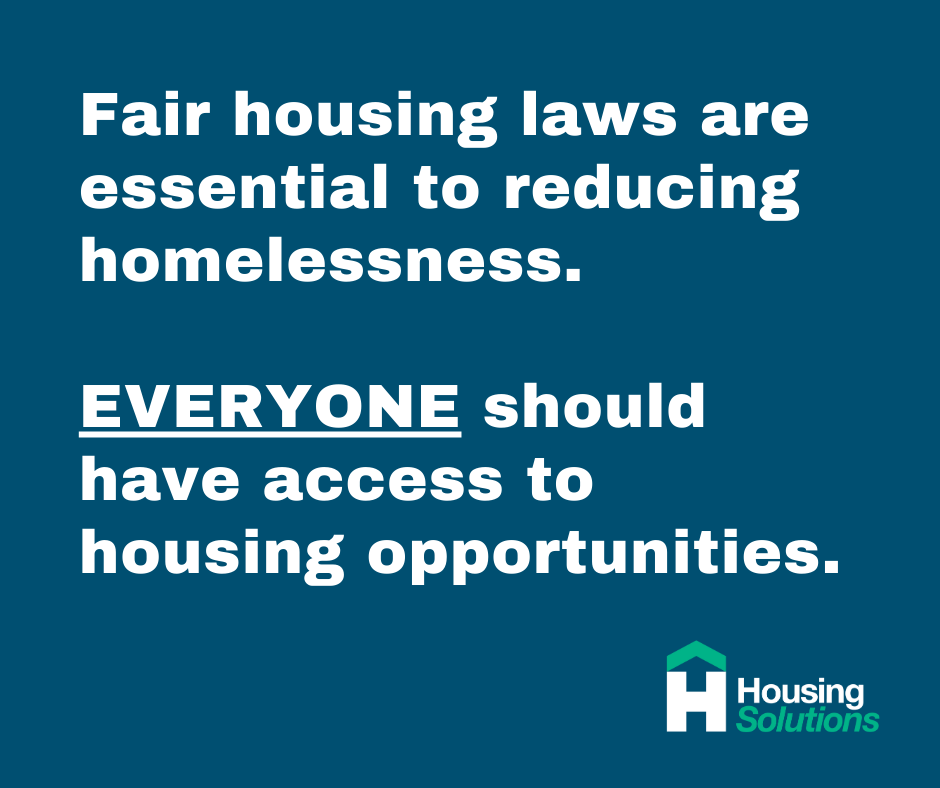Close
April marks Fair Housing Month, a time to reflect on the progress made in ensuring equal access to housing and to recommit ourselves to the ongoing work of eliminating discrimination in housing. At its core, fair housing is not just a legal principle but a fundamental human right that is essential for building inclusive communities where everyone has the opportunity to thrive. In this blog post, we’ll explore what fair housing means for both property owners and renters, and provide valuable resources for further education and action.

As a property owner, it’s crucial to understand your obligations under fair housing laws to ensure that all individuals are treated fairly and without discrimination when seeking housing. Here are some key principles to keep in mind:
Know the Law: Familiarize yourself with federal, state, and local fair housing laws, including the Fair Housing Act, which prohibits discrimination based on race, color, national origin, religion, sex, familial status, and disability.
Advertise Fairly: Avoid using language or advertising that may exclude certain groups of people. Focus on the features of the property rather than the characteristics of potential tenants.
Provide Reasonable Accommodations: Be prepared to make reasonable accommodations for individuals with disabilities, such as allowing service animals or modifying rental policies.
Treat Everyone Equally: Ensure that your screening and rental processes are applied consistently to all applicants, without regard to protected characteristics.
Stay Informed: Stay updated on fair housing developments and best practices to continually improve your compliance efforts.
As a renter, knowing your rights under fair housing laws empowers you to advocate for yourself and ensure equal access to housing opportunities. Here are some important things to remember:
Know Your Rights: You have the right to fair treatment in all aspects of renting, including advertising, application processes, and lease agreements. If you believe you have experienced housing discrimination, you can file a complaint with the appropriate authorities.
Ask Questions: Don’t hesitate to ask questions about policies or practices that seem discriminatory or unfair. Landlords are required to provide truthful information about the property and rental terms.
Document Everything: Keep records of your interactions with landlords or property managers, including correspondence, application materials, and any instances of discrimination.
Seek Assistance: If you encounter barriers to fair housing, there are organizations and resources available to help. Contact local fair housing organizations or legal aid services for guidance and support.
Be an Advocate: Advocate for fair housing in your community by raising awareness, supporting fair housing initiatives, and speaking out against discrimination when you see it.
The Tulsa Area Fair Housing Partnership is a proactive collaboration of organizations and entities dedicated to increasing the availability and accessibility of affordable and quality housing for individuals and families in the Tulsa MSA.
Through the commitment and collaborative efforts of its members, the Partnership is working toward increasing public awareness regarding the importance of equal opportunity in housing. A variety of workshops and seminars are conducted throughout the year to educate the public and industry professionals.
The mission of the Partnership is to increase the community’s understanding of, and commitment to, fair housing through outreach, education and the facilitation of dialogue. The partnership’s goal is to increase awareness of fair housing rights that will help foster an understanding of why discrimination is harmful and encourage equal and fair treatment in the sale or rental of housing.